Planning to work and travel like a digital nomad?
Or maybe just work from a remote location for a while?
Then you probably want to take a different approach when you’re searching for accommodation. After all, the places to stay that are ideal for a vacation may not always be so suitable for working remotely.
Whenever I search for accommodation for a ‘workation’ or a nomad trip, I use different sites or search filters than when I travel just for fun. Here’s how to easily find remote working accommodation.
What to look for
It’s not always so easy to know if a place will be easy to work from.
For example, many hotel booking sites still offer no assurances about the WiFi quality.
When searching for remote work accommodation, what I always want to know is:
- Is there good WiFi?
- Does it have a good workspace (or workspaces nearby)?
- Is it in a convenient location?
- Are the costs reasonable (or are there discounts for longer stays)?
That last point is pretty important!
When you’re working remotely, you typically want to keep your expenses under control — unlike a holiday where you might like to splash your cash a little more. After all, you don’t want to feel like you’re working just to pay for the trip.
Long-term remote work stays
Using Airbnb
Airbnb is a bit of a love it or hate it platform. I’ve been hearing a lot of complaints lately from travellers in the US where ridiculously high cleaning fees are sometimes added. For a short stay, this can indeed be rather frustrating. In other parts of the world, such as Europe, Airbnb seems to get far fewer complaints.
Some issues aside, for digital nomad or for remote work trips, I still find Airbnb one of the best places to look. (In addition to its competitor VRBO.)
I’ve lived out of a hotel a few times, but in my opinion, doing it longer than a week or so gets pretty depressing. Hotels are not really designed to be homes. When I stayed in a hotel for a month, it felt pretty weird and alienating after a while. Airbnbs have more of a homely feel and are usually more suitable for staying longer.
The process of finding good Airbnbs can be quite manual and time-intensive though. Many Airbnbs are holiday homes that may be in inconvenient locations (e.g. away from shops or other things you need for a longer stay). Only some Airbnbs are suitable for working.
But there are definitely some gems on Airbnb if you can do a bit of research.
In the Airbnb search filters, be sure to tick these:
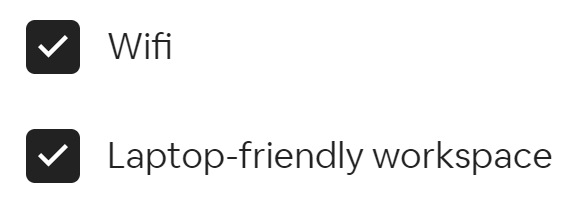
Not every place with WiFi has good WiFi though. Airbnb now has a feature where the owners can specify the available WiFi speed in the listing, based on a speed test they can do through the Airbnb app. This has made it a lot easier to find good WiFi, though sadly not every listing adds this information.
For some extra reassurance, you can ask the owner directly via private message. You can ask them to go to speedtest.net and report what number they see. To support lots of video calls and such, I think at least 25 Mbps (megabits) per second is ideal.
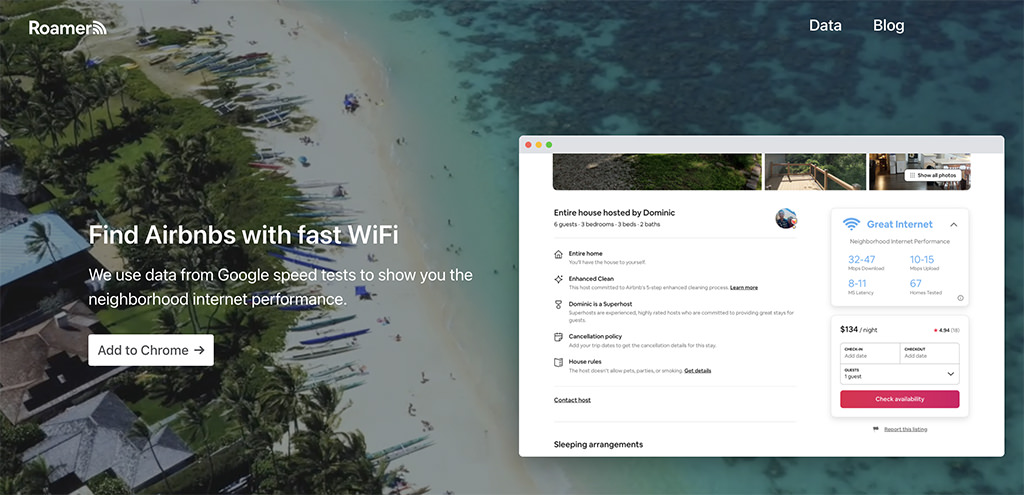
Another neat trick is to install the Roamer browser plugin. It adds a box to every Airbnb profile showing the expected internet speeds. It’s not perfect, as it relies on the average speed in the area, but it can at least tell you if fast internet is at all available.
Some Airbnbs will give discounts for weekly or monthly stays, so this is something to keep an eye on. Just by searching for a month-long stay, for instance, you may already see places with -30% or more off.
For longer stays, it can sometimes also pay to contact the owners directly and ask for an offer, as they can send you invitations with rates that are different from those that are listed. Doing this I’ve had prices up to 50% under the normal price.
House sitting (for free)
Another amazing resource for finding nomad accommodation is Trusted Housesitters.
Housesitting is such a great opportunity for nomads and remote workers, and yet so few seem to know about it!
Wouldn’t it be great if you could work remotely and stay for free? The idea of house sitting is that you can stay somewhere in exchange for taking care of the garden, plants, or pets while the owners are away.
An annual membership at TrustedHousesitters costs $99, but this is quite an insignificant cost considering it lets you apply for unlimited housesitting assignments and then have accommodation for free.
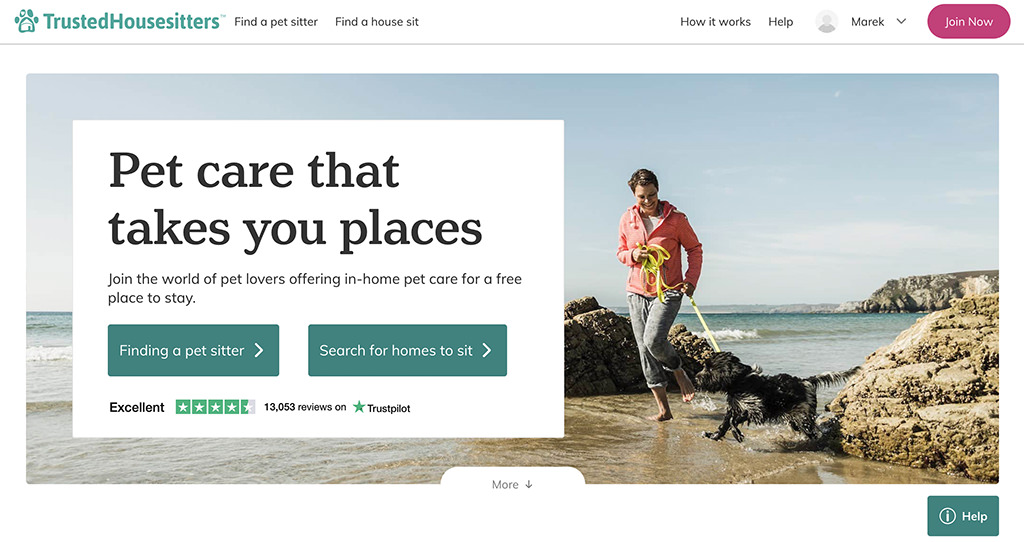
It’s weird that house sitting is so little talked about among digital nomads. It always comes up in ‘how to travel the world for free’ type of guides but never in any nomad resources, even though it’s a perfect way to keep your expenses super low while you’re earning money online. I think it’s a hugely overlooked opportunity.
I have some friends who spend several months in the year doing housesitting or home exchanges while working online. They love pets and they love staying in free accommodation.
You can also use TrustedHousesitters to find people to look after your place while you’re working remotely from somewhere else for a while.
Using VRBO
A great alternative to Airbnb is VRBO. Their inventory is not as extensive as Airbnb, however it is completely specialized in offering only stand-alone accommodation such as holiday homes (i.e. no shared spaces, private rooms, or unusual places like campsites).
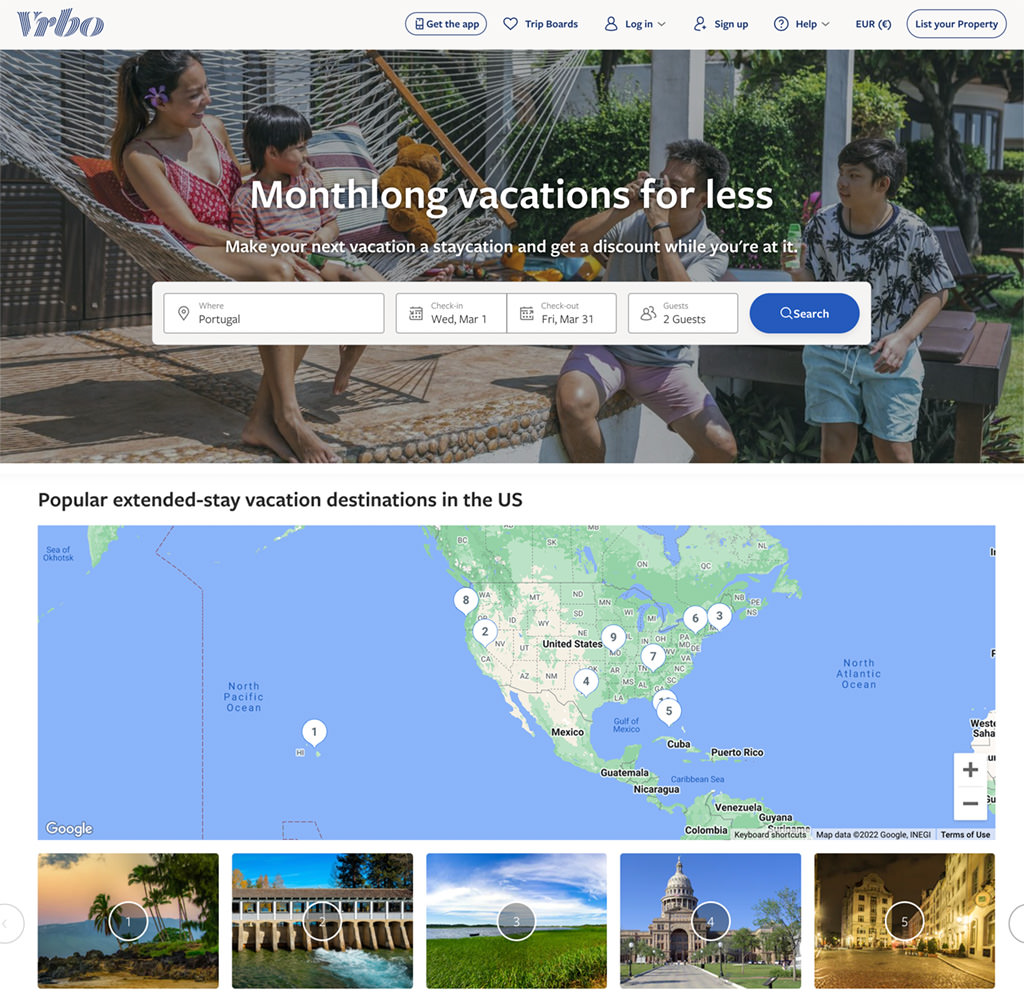
Much like Airbnb, VRBO often has discounts for longer stays. When searching for a long-term stay, you can filter your results by properties that offer a weekly or monthly discount. Weekly or monthly discounts are automatically applied to bookings of 7+ or 28+ nights.
Don’t forget to use these filters:

It is also worth (politely) asking for discounts directly from the hosts. This typically works best if it’s a last-minute booking (if the host believes no one else will book it) or for a longer stay (meaning the host will have fewer check-ins or housekeeping visits to worry about for a while).
You can look specifically for monthlong stays at VRBO.
Coliving
A different (and fun!) way to work remotely is through a coliving.
The term coliving sometimes gets used for student or low-cost housing, but that’s not what we’re talking about here. Coliving is also a form of long-stay accommodation commonly used by digital nomads.
Coliving accommodation lets you share a house with other freelancers and nomads. They typically have private rooms but with shared communal spaces and co-working offices. They’re fun and social places to stay and great for networking too.
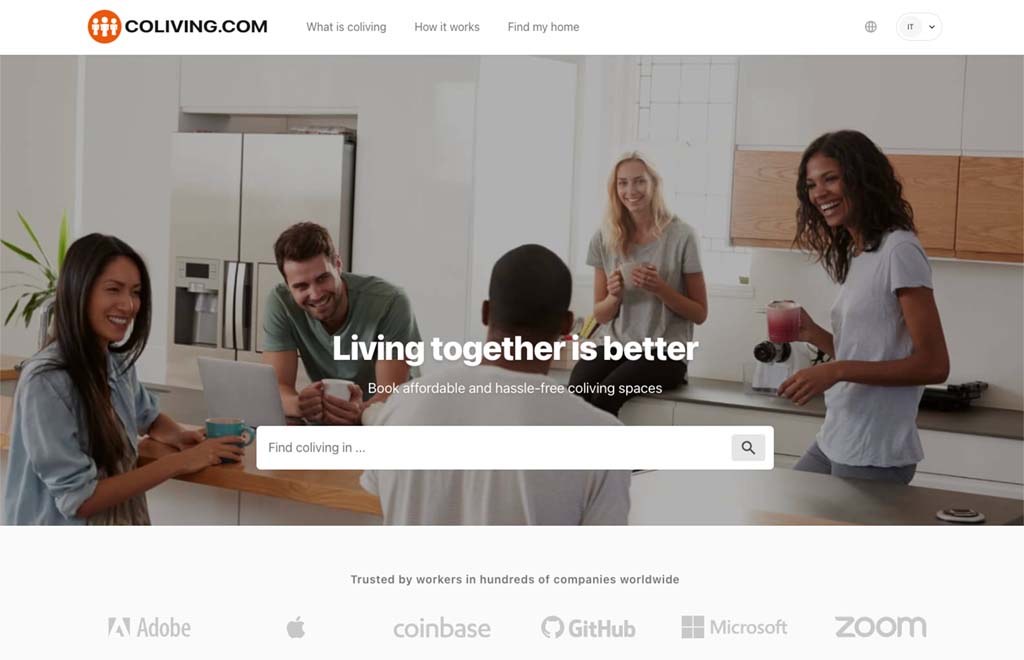
The hugeadvantage of booking a coliving is that you don’t have to scroll through endless listings of places that aren’t actually suitable for working remotely. You will know for sure the place has great WiFi, desks to work from, and everything else you need.
The biggest platform for finding these places is Coliving.com.
There are also emerging brands of coliving accommodation providers such as Outsite that have properties around the world. These are all set up for the specific purpose of offering remote work accommodation, so you can be assured that everything you need will be there. Another advantage is that you’re likely to be sharing the co-working offices with likeminded folks. It’s great for networking and to make the experience more fun.
Most people who stay in co-livings tend to stay for at least a few weeks, some for several months at a time. Having other remote workers around is a big plus of this type of accommodation, and some co-livings even organize activities such as morning yoga, afternoon surfing, etc. They are therefore a great way to tap into the nomad lifestyle without having to do all that much planning.
Short-term remote work stays
If you’re just looking to work remotely for, say, a long weekend or a week, then it may also be worth having a look at Airbnb.
However, the increased hassle of personal check-in on Airbnb and the setup time (settling in, knowing the house rules, etc.) make it a bit less easy for a short-term stay.
Hotels with 24-hour reception can be more convenient in this case. Hotels can be decent to work from, especially if the room has a desk or the hotel has a good lobby area from where you can work. Sites where you can easily find more premium and brand-name hotels include Expedia and Hotels.com.
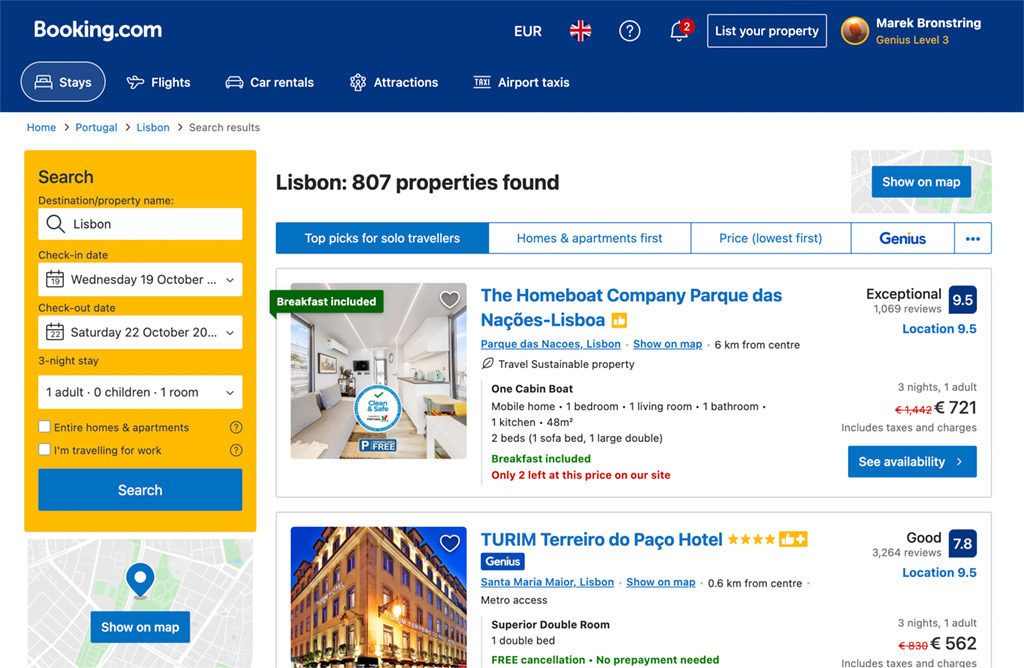
For great hotels as well as more local accommodation, I recommend searching on Booking.com. It works on a different model from the larger hotel sites, allowing smaller hotels, guesthouses and apartments to set up their own profiles after some vetting. That makes it a goldmine for remote-friendly accommodation that you may not find somewhere else. I find Booking.com particularly useful for finding accommodation in Europe or Asia, but it has good inventory pretty much anywhere.
On Booking.com, use the filter ‘Free WiFi’ to narrow down your results. Then look for ‘WiFi available in all areas’ in the hotel profile.
You can also use this handy filter (look for it besides your hotel results):
Some links may be affiliate links, meaning I may earn commission from products or services I recommend. For more, see site policies.
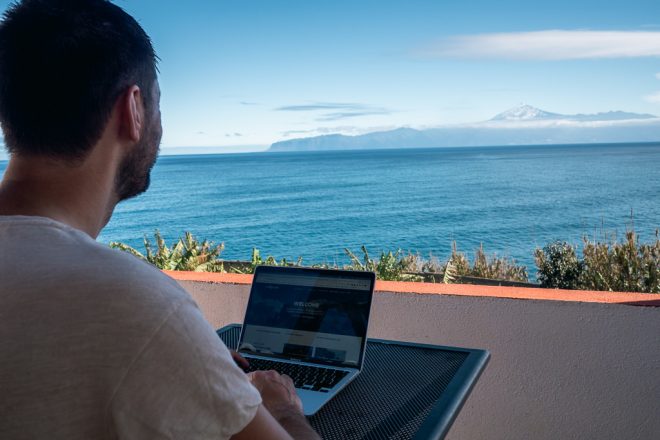






Check out this site as well, it has accommodations specifically built for remote workers:
https://nomadstay.com
Very helpfull!
Thank you, very helpful
good article